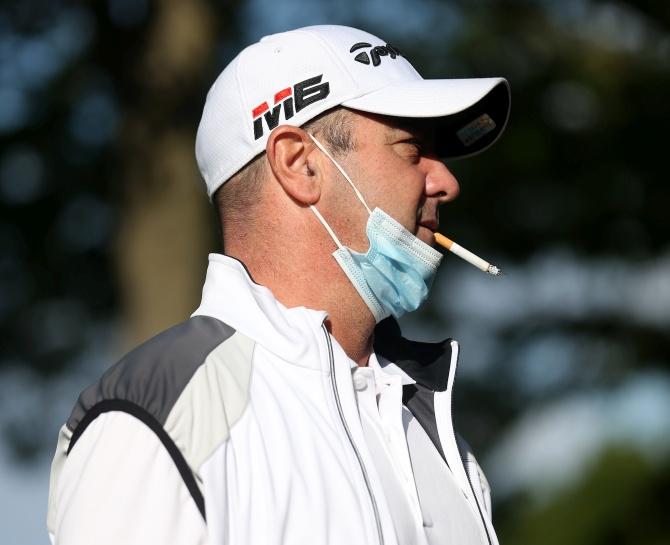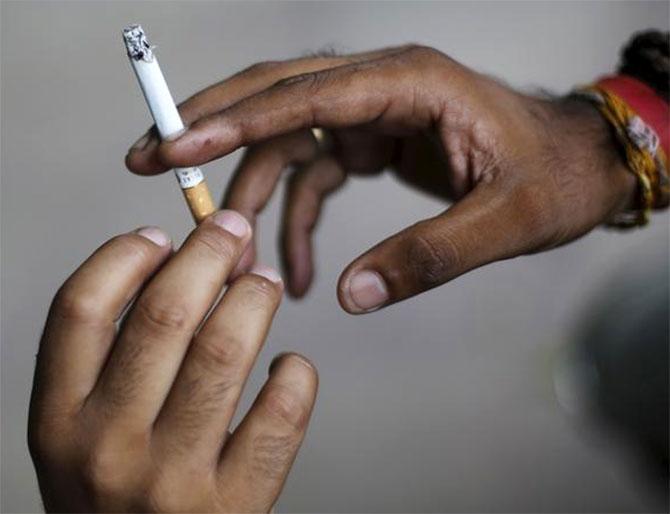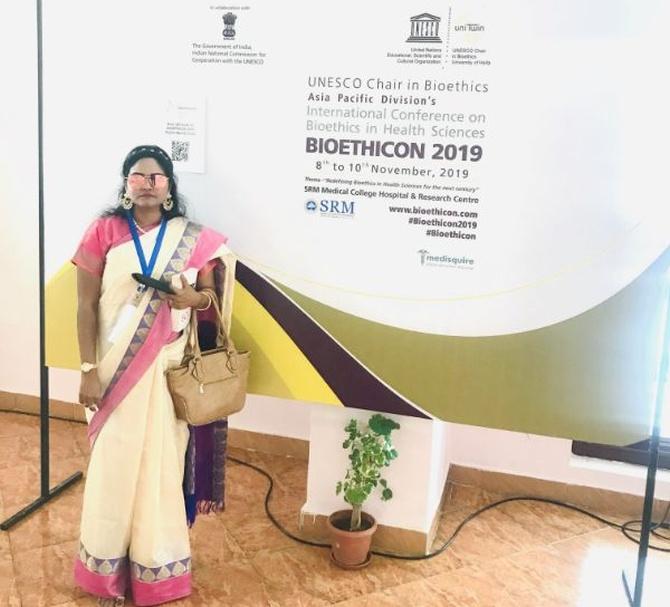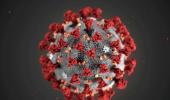'Smokers are a highly susceptible population during this pandemic.'
'Health benefits from quitting smoking can start as early as within an hour.'

As a smoker, do you know how high your risks are in these virus-driven times?
COVID-19 has been taking out people with comorbidities, be it diabetes, cardiac illness or hypertension.
In its unstoppable, carefree trek around the world it has fatally affected smokers, no mattter your age.
Times are far more stressful, leading to people leaning more on tobacco around the world to help their mental stress. And there's nothing more risky you can do than that.
If you stop smoking right today -- like some 64 per cent of 1,500 smokers surveyed recently in a study in India are trying to, many from a younger age group, now, during lockdown -- there will be an immediate and instantaneous difference in your life.
In just 12 hours the position of your abused lungs will start rapidly improving, according to community medicine specialist Dr Sree T Sucharitha, who has worked extensively on projects focused on tobacco prevention, control and cessation for both combustible and oral tobacco users.
She is a regional expert voice on tobacco harm reduction for the Coalition of Asia Pacific Tobacco Harm Reduction Advocates.
An MD fellow in HIV medicine, Dr Sucharitha is a professor at the department of community medicine, Tagore Medical College hospital, Chennai.
"Smoking can exacerbate the susceptibility to COVID-19, specifically regarding the disease's morbidity and mortality," Dr Sucharitha tells Vaihayasi Pande Daniel/Rediff.com.
What exactly are the dangers, in medical terms, to smokers from COVID-19? What percentage of risk are they facing?
The direct correlation of smoking and COVID-19 is still under exploration.
But the global consensus among researchers is that smoking can exacerbate the susceptibility to COVID-19, specifically regarding the disease's morbidity and mortality.
It's still too early to arrive at any exact percentages, but the evidence is growing. It's important to evaluate it carefully before drawing conclusions.
Smokers are more likely to experience co-morbidities such as tuberculosis, chronic obstructive pulmonary disease, hypertension, atherosclerosis, diabetes and related kidney disease, etc, leaving smokers more vulnerable to death.
Is the risk to smokers on par with the risks that people suffering from diabetes, cardio-vascular diseases, hypertension have to COVID-19? Is it an equally serious comorbidity?
Smoking is a major modifiable risk factor of all of the above stated chronic diseases.
Moreover, in the developing world, smoking also increases the chance of suffering a respiratory illness like tuberculosis.
Smoking is a risk factor and is implicated in the occurrence of such illnesses, so their synergies are inseparable.
Recent studies have shown that smokers can reduce their risk from COVID-19 by stopping smoking, to allow their lungs to recover and improve their oxygen saturation levels.
How does that work?
The latest research emerging about smoking, and risks of contraction, transmission and mortality rate due to COVID-19, highlight the ACE2 receptor upregulation and these are the known receptors for corona virus (Explanation: Smoking causes an upregulation or increased expression of ACE2 proteins in the cell, which are viral target proteins ie places where viruses love to go. Upregulation is the process of increasing the response to a stimulus)
These receptors are found in the subset of type-2 alveolar cells or AT2 (the cuboidal alveolar type II cells that occupy part of the alveolar or air sac surface area in the lungs) which express reproductive and transmission genes of SARS-CoV in great numbers.
This indicates that smokers are a highly susceptible population during this pandemic.
It is also well-known that smokers are more likely to contract respiratory illnesses including COPD, TB and pneumonias.
Health benefits from quitting smoking can start as early as within an hour.
For example, almost immediately after quitting a person has less carbon monoxide in their system and a person's levels go back to normal within twelve hours.
Though, it is important to understand that the pandemic promotes reflection on smoking behaviour, but population-level strategies, that encourage quitting, are needed to sustain the momentum.

What are the other ways in which stopping smoking as soon as possible will reduce smokers's risk from COVID-19?
To help people quit there is a need for more education around the risks of smoking, within the context of the pandemic.
For example, the act of smoking involves frequent touching of fingers to the mouth and nose areas -- all of which increases transmission of the virus.
Sometimes people share cigarettes and that also increases the likelihood of transmission.
The healthcare system needs to proactively engage the pandemic-influenced smokers, who are inclined to quit tobacco, and help them make healthy transitions away from smoking.
This can be done by incorporating harm reduction principles and approaches with cessation as the end goal.
We need to re-envision public policy and healthcare practices around encouraging new sustained health behaviours in regard to smoking.

Have there been many deaths among the younger age group from COVID-19 among smokers elsewhere in the world?
There needs to be still more research about this, before I draw a conclusion about tobacco use and mortality among young populations in relation to contracting COVID-19.
Has there been a genuine phenomenon of people quitting smoking in India that you are aware of, since the arrival of COVID-19?
Yes, the Foundation for a Smoke Free World's new study COVID-19 State of Smoking Poll (external link) revealed that many smokers have considered quitting all products because of health concerns (Italy, 42 per cent; South Africa, 53 per cent; UK, 42 per cent; the US, 42 per cent).
In India, 64 per cent of users surveyed indicated that they had considered quitting and 62 per cent of them followed up with an attempt to quit.
Also, prices have gone up and there are new reports* that cite people transitioning from cigarettes to bidis and even smokeless forms of tobacco.

Are people chewing tobacco facing a higher risk too from COVID-19? Why so, in medical terms?
Chewable tobacco, also known as smokeless tobacco (SLT), is very popular among men and women who are tobacco users -- and this is especially true for the low-income population.
Per the GATS-2 survey (external link), every fifth adult in India uses SLT products.
People chewing tobacco may face a higher risk because of spitting habits commonly practiced in public places and hand-to-mouth transfer of ground tobacco products.
These spitting practices are detrimental during a pandemic and can increase risk in close communities and slum dwellings.
It's pretty hard for a smoker to quit. And without the availability during lockdown of nicotine gum, patches etc, what is the best way to do it?
There needs to be a 'mindset shift' regarding stigmatisation around smokers and more needs to be done around harm reduction and cessation strategies.
The best way forward is to engage systems such as telehealth consultations with qualified and specially trained health care professionals such as psychiatrists, psychologists and counsellors and expand the reach of these services widely during lockdowns.
Also, there needs to be new, low-cost product innovations and access to safer nicotine products.

Production: Rajesh Alva/Rediff.com










